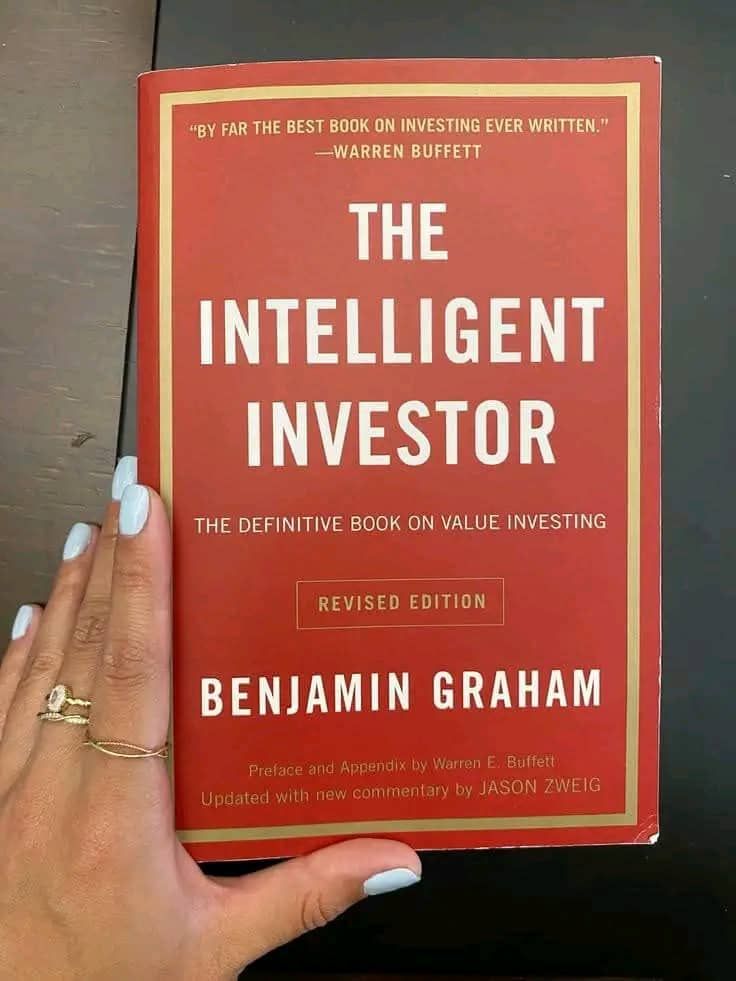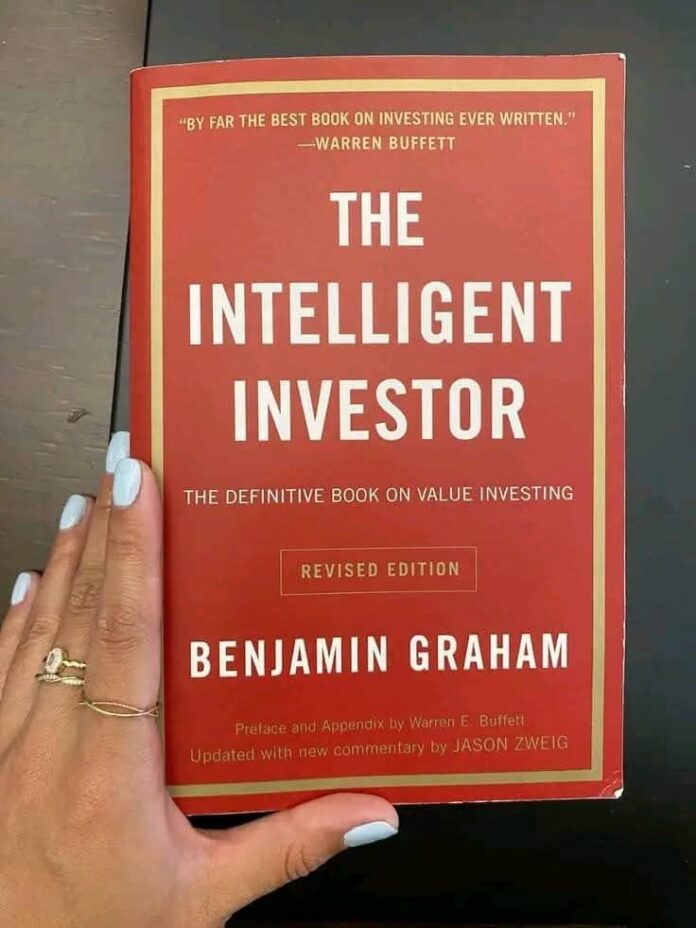By Burnett Munthali
Benjamin Graham’s The Intelligent Investor is a masterclass in value investing and rational financial decision-making.
The book’s timeless principles—such as focusing on intrinsic value, maintaining emotional discipline, and seeking a margin of safety—serve as a guide for navigating the often unpredictable world of investing.
Graham’s wisdom reminds us that success in investing doesn’t require brilliance or market timing; instead, it requires patience, consistency, and a commitment to sound principles.

Whether you’re a novice or an experienced investor, the lessons from this book provide a framework for building wealth over the long term while minimizing unnecessary risk.
Key lessons from the intelligent investor
1) The difference between investing and speculating
Benjamin Graham emphasizes the critical distinction between investing and speculating.
Investing involves thorough analysis, the safety of principal, and aiming for adequate returns over the long term.
Speculation, on the other hand, is akin to gambling—focused on short-term price movements without considering underlying value.
2) The importance of a “Margin of safety”
One of Graham’s most famous principles is the concept of the margin of safety.
This involves buying investments (such as stocks) at prices significantly below their intrinsic value.
A margin of safety provides a cushion against potential errors or unforeseen market downturns.
This principle helps protect investors from unnecessary risk.
3) The stock market is not always rational
Graham introduces the metaphor of Mr. Market, a fictional character who represents the stock market’s erratic behavior.
Mr. Market offers prices daily, but these prices are often driven by emotions like fear or greed rather than rational analysis.
An intelligent investor recognizes these fluctuations as opportunities rather than reasons to panic.
4) Investing requires discipline, not emotion
Successful investing, according to Graham, requires a cool, rational mindset.
Reacting emotionally to market swings—whether through fear in a downturn or euphoria in a bull market—leads to poor decision-making.
Discipline and patience are key to long-term success.
5) Know the difference between price and value
Graham underscores the importance of understanding the difference between a stock’s price and its intrinsic value.
The price of a stock reflects what the market is willing to pay at a given moment.
Intrinsic value, however, is what the company is truly worth based on its fundamentals.
Intelligent investors focus on value rather than being swayed by short-term price movements.
6) The defensive vs. Enterprising investor
Graham outlines two types of investors.
The Defensive Investor prefers a low-risk, hands-off approach, focusing on diversification and stable investments like bonds or blue-chip stocks.
The Enterprising Investor is more active and willing to put in extra effort to research undervalued stocks or take calculated risks.
Both approaches can be successful, but investors must choose based on their temperament, time, and resources.
7) Diversification reduces risk
Graham advocates for diversification as a way to protect against potential losses.
By spreading investments across different industries, asset classes, and geographies, an investor reduces the impact of any single company or market downturn on their overall portfolio.
Diversification acts as a shield against unexpected market fluctuations.
8) Resist the temptation to time the market
Timing the market—trying to predict when prices will go up or down—is a losing strategy, according to Graham.
Instead, intelligent investors should focus on long-term trends and resist impulsive trading.
A disciplined investment approach, rather than reacting to short-term volatility, is key to sustainable growth.
9) Earnings and dividends matter
For Graham, the foundation of any stock’s value lies in its earnings and dividends.
He emphasizes the importance of analyzing a company’s financial health, growth potential, and dividend history.
Strong earnings and consistent dividends indicate a company’s ability to generate long-term value for investors.
10) Be wary of market predictions and gurus
Graham warns against relying on market predictions, media hype, or so-called “experts.”
The future of the market is inherently uncertain, and no one can consistently predict its movements.
Instead, investors should base decisions on sound analysis and the principles of value investing.
The Intelligent Investor remains one of the most influential books on investing ever written.
Graham’s principles have stood the test of time, providing a roadmap for financial success regardless of market conditions.
Investors who apply his teachings—focusing on value, maintaining discipline, and avoiding speculation—are better positioned for long-term wealth creation.
Whether you are new to investing or a seasoned professional, this book offers invaluable wisdom that can shape your financial future.



